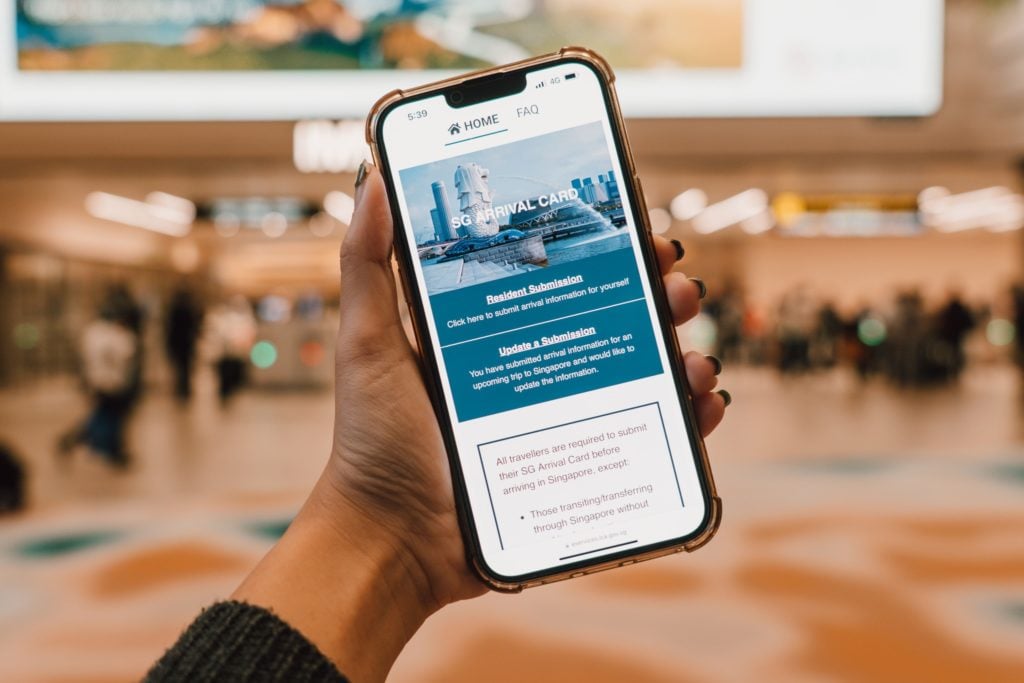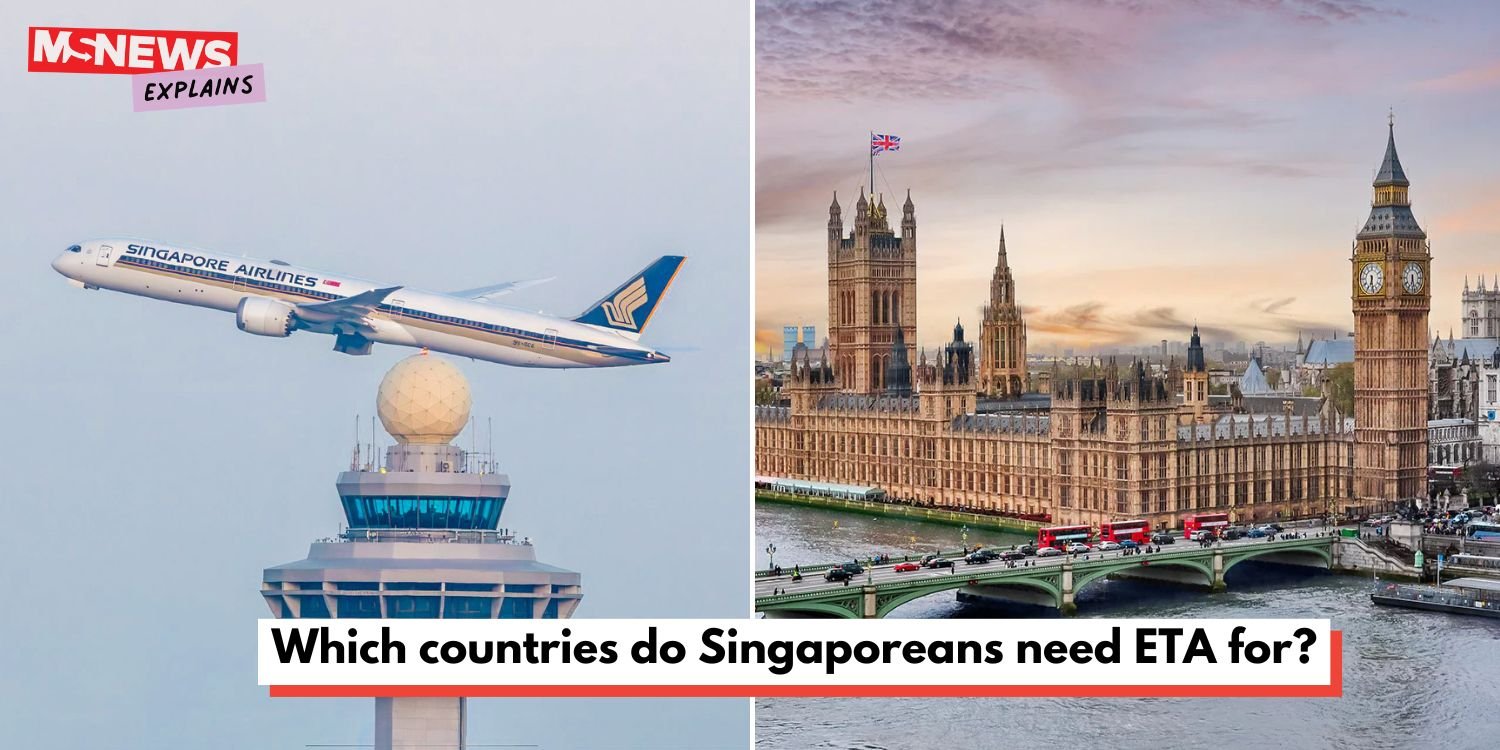4 things to know about the Electronic Travel Authorisation system
In September, Thailand announced the Electronic Travel Authorisation (ETA) system for tourists — an entry requirement specifically for visa-exempt foreign nationals.
As Singaporeans enjoy the luxury of visa-free entry to 195 out of 227 travel destinations including Thailand, they are some of those affected by the recent news.
The Southeast Asian country is one of several destinations around the world adopting the system, though certain aspects such as validity periods and age eligibility vary from country to country.
For example, South Korea only requires an ETA for adults aged between 18 to 65, whereas countries such as the UK require all travellers to apply for one — even infants.
Here is the Singaporean’s ultimate guide to the ETA system, including which countries require this additional step.
1. An ETA is not an e-Visa
An ETA comes in the form of a digital document which will be electronically linked to an individual’s passport upon successful application.
The system enables countries to enhance their security by conducting thorough safety checks on travellers prior to their arrival. Such checks include identifying potential risks posed by said visa-exempt travellers including assessing their criminal records and public health records.

Source: International Experience
ETA should not be confused with an e-Visa, however.
According to Visas News, an e-Visa is typically required for longer stays and activities such as studies and work.
Meanwhile, the ETA is used for shorter stays by visa-exempt visitors for tourism or transit.
The ETA process is also said to be much shorter and more cost-efficient.
An ETA application often takes a few hours or even minutes to be processed, in contrast to the e-Visa which typically requires many days to be approved.
As for how travellers can apply for the ETA, this can be done through each country’s immigration websites.

Source: visasnews
The process is completely digital — hence, travellers do not need to worry about the hassle of submitting physical documents.
2. Singaporeans need Electronic Travel Authorisation for multiple countries
Countries such as Australia, Canada, and the United States of America (USA) have long implemented their ETA systems. New Zealand and South Korea followed suit in 2019 and 2021 respectively.
The United Kingdom and Thailand are also expected to fully implement the ETA system in 2025.
Additionally, the European Union announced the European Travel Information and Authorisation System (ETIAS), Europe’s version of the ETA, set to be implemented in the first half of 2025.
Singaporeans will thus need an ETIAS to travel to any of the 30 countries in the Schengen area.
These include destinations in Europe such as France, Germany, Greece, Netherlands, and Spain.
According to Visas News, Japan also plans to implement the ETA system — although the timeline is not known yet.
3. The validity period of an ETA depends on the country
Singapore travellers may then pose a question — Do I need to keep applying for an ETA every time I travel to the said country?
Apart from Thailand, the remaining countries carry prolonged validity periods which allow multiple visits within the timeframe.
Thailand’s ETA grants travellers a single entry, valid for up to sixty days from the date of issuance.
For the others, as long as their ETA for said country is still valid, travellers do not have to apply for an ETA again.
For instance, Canada’s ETA has a validity period of five years or upon expiry of an individual’s passport.
Hence, travellers who intend to visit Canada multiple times in that period may do so without applying for a new ETA.
At the time of writing, the validity period of each country’s ETA is as such:
- Australia — 1 year
- New Zealand — 2 years
- USA — 2 years
- United Kingdom — 2 years
- South Korea — 3 years
- Europe (Schengen area) — 3 years
- Canada — 5 years
- Thailand — Single entry
The validity periods of the above ETA are all subjected to the validity of a traveller’s passport. When a traveller renews their passport, they would have to apply for an ETA again regardless of the aforementioned validity periods.
4. Application fees & processing times also vary
The cost of each application and processing time varies from country to country.
For instance, the ETIAS is expected to be affordably priced from €7 (S$10). On the other hand, the Electronic System for Travel Authorization (ESTA) for the USA is priced at a higher cost of US$21 (S$27.40), rising up to about S$49.60 upon successful application.
At the time of writing, the ETA application fees for the remaining countries who require it are as follows:
- Australia — AUD$20 (S$17.60)
- New Zealand — NZ$17 (S$13.50) on the NZeTA app or NZ$23 (S$18.30) online
- United Kingdom — £10 (S$17.10)
- South Korea — 10,000 KRW (S$9.60)
- Canada — CAD$7 (S$6.60)
- Thailand — Free
New Zealand also imposes a tourism levy of NZ$100 (S$80) in addition to the ETA application fee.
Australia also states that they require one to three business days to process an application. Europe’s ETIAS promises approval “within minutes” for Singapore passport holders.
Singapore unlikely to introduce an ETA for tourists
With an increasing number of countries implementing ETA, people have asked if Singapore will be following suit.
Mr Aaron Wong, the founder of travel website The MileLion, told ChannelNewsAsia (CNA) that it is “unlikely” for the Lion City to do so.
“It’s a bit more difficult for a country like Singapore to have this requirement, given that our entire economy is dependent on the free movement of goods and people,” he said.
Mr Patrick Ong, a Senior Assistant Director of the Strategic Communications and Media Relations department at the Immigration and Checkpoints Authority (ICA) echoed Mr Wong’s thoughts on the matter.
In a statement, Mr Ong said that the ETA “may not be necessary (for Singapore) for now“. He highlighted the use of the Singapore Arrival Card (SGAC), which both foreign nationals and locals have to complete upon arrival.

Source: Changi Airport on Facebook
“ICA uses information submitted via SGAC, along with advance passenger information from airlines and other sources of information, to conduct a risk assessment of foreign visitors before they arrive at our checkpoints,” Mr Ong said.
He added that “persons of interest” who are flagged by ICA’s pre-arrival risk assessment will be “subjected to more stringent immigration and security checks”.
“Visitors who are assessed to pose an immigration or security risk or do not meet our entry requirements, will not be allowed into Singapore.”
Also read: 5 things to know about Lee Wei Ling, the bold neurologist who spoke her mind
5 things to know about Lee Wei Ling, the bold neurologist who spoke her mind
Have news you must share? Get in touch with us via email at news@mustsharenews.com.
Featured image adapted from Changi Airport on Facebook and edie for illustration purposes only.








